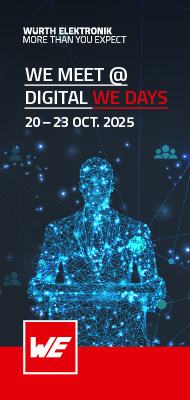
© jirsak dreamstime.com
General |
UL expands its Silicon Valley 5G testing facility
Science safety company UL, announces that it has opened the expansion of its Silicon Valley electromagnetic compatibility (EMC) and wireless testing laboratory with the debut of new 5G testing facilities.
One of the largest 5G testing facilities in North America, the Silicon Valley laboratory addresses the growing demand for 5G wireless testing and certification services.
"Balancing 5G technology innovation and speed-to-market with operational and product safety are crucial to customer success in a dynamic and demanding market," says Maan Ghanma, strategy and business development director for UL's Wireless and Consumer Technology division. "This is why we have proactively addressed potential challenges facing wireless technology manufacturers and their suppliers and have prioritized our 5G investments in Silicon Valley to test a myriad of devices and equipment."
The expansion meets the need of Silicon Valley companies to securely test their products near their Northern California research and development offices and to help accelerate 5G network development. The UL laboratory's strategic Bay Area location – as part of the region's innovation ecosystem – places it near the world's hub of technology companies that are developing products and solutions with 5G capabilities and dependencies.
"Applications that tap the full potential of 5G are on the horizon and will be a profound leap in innovation from 4G to 5G. While Silicon Valley is key to pushing out the 'next new thing' and setting rapid speed-to-market goals, COVID-19 has helped fuel a heightened demand here at UL for 5G testing," Ghanma adds.
The pandemic and the resulting rise in remote work, school and entertainment for millions of people across the country has caused internet use to surge. This has placed big demands on existing communication networks for higher speed services, faster download time and increased bandwidth. In the U.S., the overall average daily fixed broadband consumption per user has increased approximately 3 GB from January to now. All of this has increased the need for more robust networks and an acceleration in the deployment of 5G-based technologies.
To that end, UL is working to support rapid 5G innovation in the automotive, consumer, electronics, healthcare and industrial sectors while helping companies in these industries safeguard and lower security vulnerabilities and helping curtail complexity to market. UL's operation in Fremont is one of only a few third-party testing laboratories in the world to offer 5G testing for both millimeter wave (mmWave) and sub-6 gigahertz (GHz) frequency ranges, the company states.




